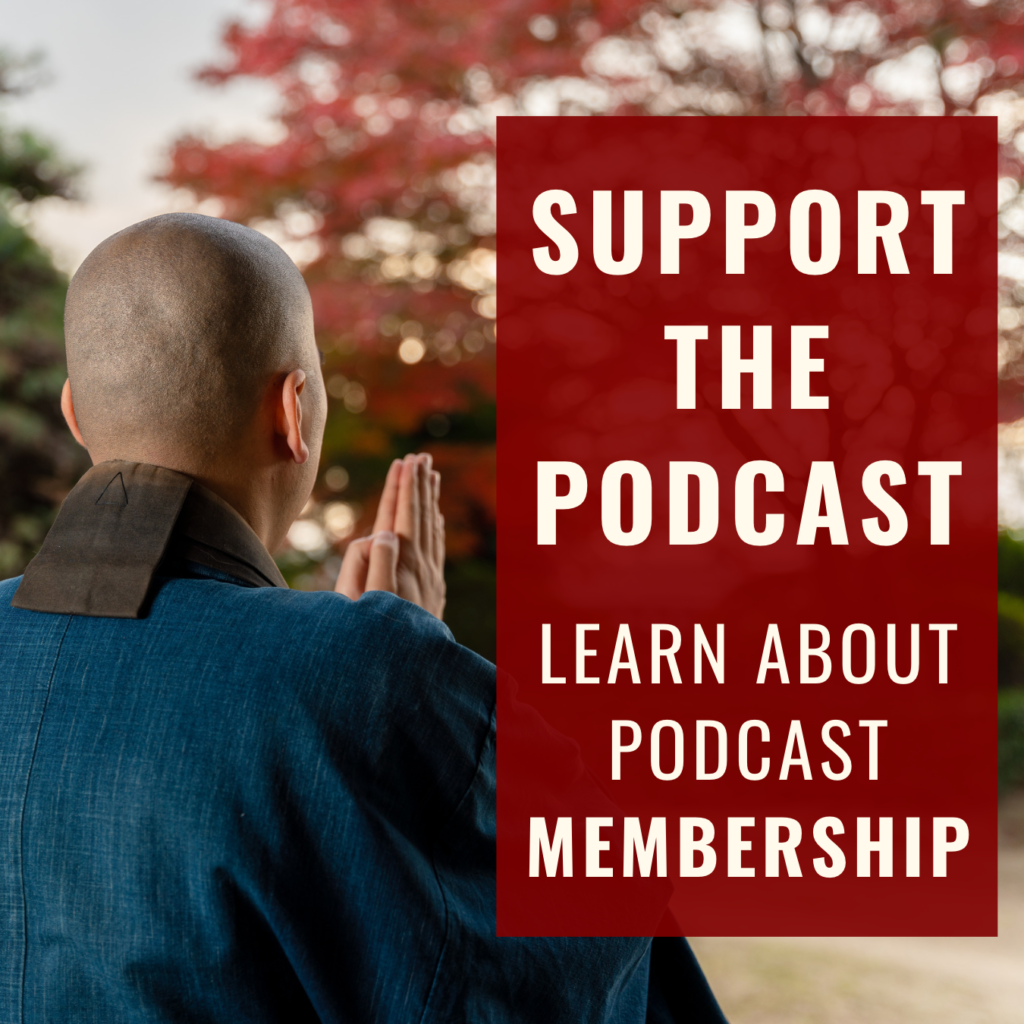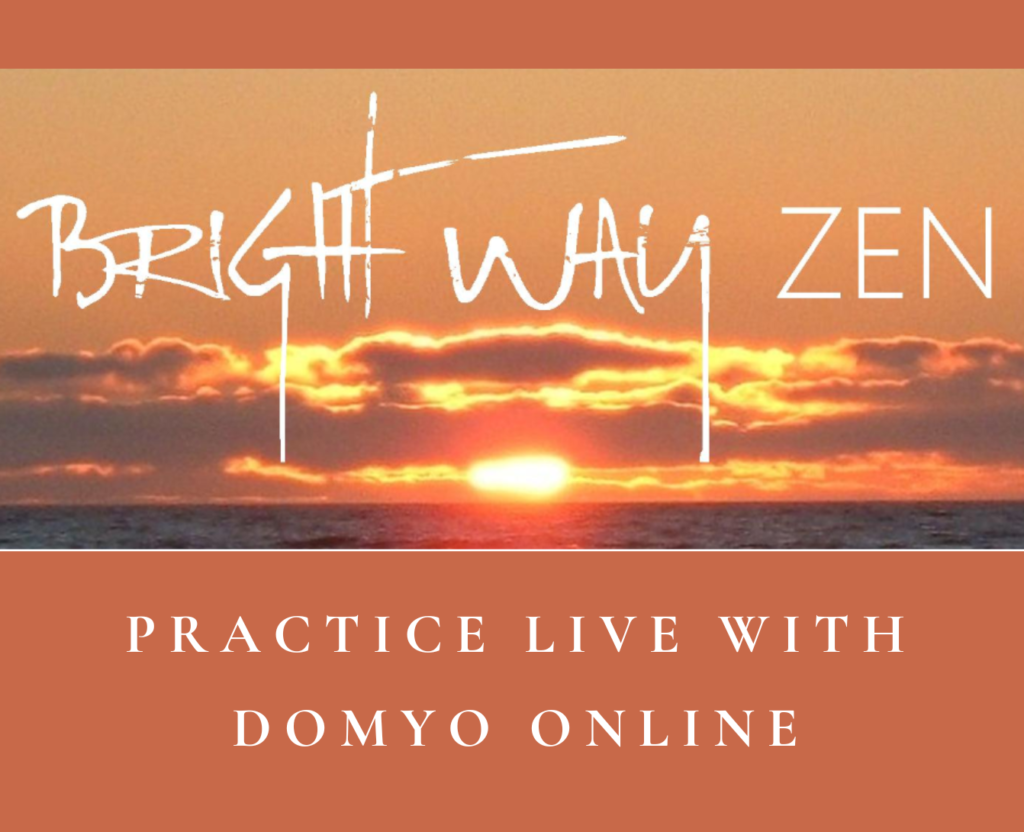
by Domyo | Jan 29, 2026 | Meditation
Since the term arose in 1950’s, “self-care” has referred to a number of different things. If we consider self-care to be things you do to remain physically and mentally healthy, then Zazen – simple, goalless, Zen meditation – can be seen as excellent self-care. In these troubled times, such self-care can even be seen as defiant – refusing to be broken down by challenging circumstances. Other forms of meditation can also be seen as self-care, of course, but Zazen can be a little difficult to get your mind around. Framing it as self-care may help you appreciate what it’s all about.

by Domyo | Jan 14, 2026 | Spanish Translations
Category: Preguntas de Oyentes ~ Translator: Claudio Sabogal Click here for audio + English version of Episode 322 Este episodio de preguntas y respuestas se basa en las preguntas que he recibido de los oyentes: ¿Tiene el Zen algo que decir sobre...

by Domyo | Jan 13, 2026 | Listener's Questions
This a Q&A episode based on questions I’ve received from listeners: Does Zen have anything to say about human relationships? Can we learn anything from the cultural popularization of the term “Zen”? If we have no independent self-nature, what about our sense of enduring self? Do Buddhists practice confession like Catholics?

by Domyo | Jan 1, 2026 | Spanish Translations
Category: Enseñanzas Zen ~ Translator: Claudio Sabogal Click here for audio + English version of Episode 321 Históricamente, el Zen es una forma de Budismo Mahayana que evolucionó a partir de las formas originales de Budismo...

by Domyo | Dec 31, 2025 | Zen Teachings
Viewed historically, Zen is a form of Mahayana Buddhism that evolved from the original forms Buddhism that were established in India after the Buddha’s death around 2,500 BC. Many aspects of original Buddhism are retained in Zen, including respect for Shakyamuni Buddha and his teachings. However, the degree of transformation Buddhism underwent when it took root in China and evolved into Chan (later called “Zen” in Japan) is difficult to overestimate, resulting in a path of radical nondualism. Both the ultimate goal of practice and the means to achieve that goal changed so radically that it’s legitimate to question whether Chan is even Buddhism. If you want to walk the path of Zen/Chan, it’s essential to understand how it differs from original Buddhism.

by Domyo | Dec 3, 2025 | Spanish Translations
Category: Práctica Budista, Enseñanzas Budistas ~ Translator: Claudio Sabogal Click here for audio + English version of Episode 320 El Budismo Zen ejemplifica la práctica basada en el autopoder, o jiriki. El Budismo de la Tierra Pura...

by Domyo | Dec 2, 2025 | Buddhist Practice, Zen Teachings
Zen Buddhism exemplifies practice based in self-power, or jiriki. Pure Land Buddhism exemplifies practice based in other-power, or tariki. These are very different entry gates, but when we examine self-power and other-power more closely, we see that the ultimate goal of practice requires both.

by Domyo | Nov 22, 2025 | Spanish Translations
Category: Enseñanzas Zen ~ Translator: Claudio Sabogal Click here for audio + English version of Episode 319 Hoy hablaremos de lo que Kosho Uchiyama quiso decir en su libro “Abriendo la Mano del Pensamiento” cuando habló de...

by Domyo | Nov 21, 2025 | Listener's Questions
This is one of my unscripted Q&A episodes, where I answer questions submitted by listeners. What does Kosho Uchiyama mean in his book Opening the Hand of Thought, when he talks about “settling as universal life?” Isn’t the Zen emphasis on monastic practice and self-liberation at odds with the Bodhisattva Vow to free all beings? What can we learn from practicing with other Buddhist traditions than our own, and is this recommended if we don’t live near a Zen center?

by Domyo | Nov 16, 2025 | Spanish Translations
Category: Enseñanzas Zen ~ Translator: Claudio Sabogal Click here for audio + English version of Episode 318 A diferencia de Jesús, Buda no nos instruyó explícitamente a «amar a nuestros enemigos». Sin embargo,...

by Domyo | Nov 15, 2025 | Buddhist Teachings
Unlike Jesus, the Buddha didn’t explicitly instruct us to “love our enemies.” However, he did instruct us to extend goodwill, or Metta, to all beings unconditionally – including, of course, our enemies. In this time of growing divisiveness, what does it really mean to follow this teaching? Most people will admit that nurturing resentment and hatred is probably a bad idea, but on the other hand it feels completely unacceptable to capitulate to – surrender to or stop resisting – those who we perceive as causing harm. Fortunately, there are many benefits to loving our enemies, and doing so does not mean capitulating to them.

by Domyo | Nov 1, 2025 | Spanish Translations
Category: Textos Budistas, Enseñanzas Zen ~ Translator: Claudio Sabogal Click here for audio + English version of Episode 317 En este episodio leo y reflexiono sobre el Capítulo Uno del Denkoroku de Keizan: Registro de la Transmisión...

by Domyo | Oct 31, 2025 | Buddhist Texts, Zen Teachings
In this episode I read and reflect on Chapter One of Keizan’s Denkoroku: Record of the Transmission of Illumination. In it, Shakyamuni Buddha holds up a flower and blinks. Keizan says, “No one knew his intention, and they were silent.” Then Mahakashyapa gives a slight smile, and the Buddha acknowledges him as his Dharma heir. What is going on in this koan? Keizan challenges our ideas about awakening, time, causation, and the nature of self.

by Domyo | Oct 21, 2025 | Spanish Translations
Category: Budismo Hoy ~ Translator: Claudio Sabogal Click here for audio + English version of Episode 316 ¿Cuándo deberían las comunidades Budistas adoptar posturas públicas sobre temas que podrían considerarse...

by Domyo | Oct 20, 2025 | Buddhism Today
When should Buddhist communities take public stands on issues that could be seen as political? If politics is about how we make decisions in groups (local communities, towns, cities, states, nations), are Sanghas really be free from politics when they are embedded in these larger groups? Silence can function as tacit approval, so is maintaining neutrality in keeping with our Buddhist values? On the other hand, there are many good reasons for Sanghas to avoid bringing discussions of politics in their places of practice, and I discuss them.

by Domyo | Oct 1, 2025 | Spanish Translations
Category: Diez Meditación ~ Translator: Claudio Sabogal Click here for audio + English version of Episode 315 La forma de meditación que practicamos en el Zen, a menos que estemos trabajando en un koan, se llama shikantaza (nada más...

by Domyo | Sep 30, 2025 | Meditation
The form of meditation we do in Zen, unless we’re working on a koan, is called shikantaza – nothing but sitting – or silent illumination. It’s been called a “method of no method,” in which we let go of any striving whatsoever – even to control our meditative experience. So can we do “bad zazen?” Theoretically, there’s no such thing, and yet it sure feels like there is! What is this about?

by Domyo | Sep 25, 2025 | Spanish Translations
Category: Diez Campos del Zen ~ Translator: Claudio Sabogal Click here for audio + English version of Episode 314 Hoy responderé tres preguntas. Este episodio se titula “Consuelo en los Preceptos”, “Ira ante la Injusticia” y...

by Domyo | Sep 24, 2025 | Listener's Questions
How do you find comfort in the precepts? What is the relationship between anger, forgiveness and justice? What about anxiety due to abrupt insight into emptiness? This is one of my unscripted Q&A episodes, where I answer questions submitted by listeners.

by Domyo | Sep 15, 2025 | Spanish Translations
Category: Diez Campos del Zen ~ Translator: Claudio Sabogal Click here for audio + English version of Episode 313 Esta es la tercera parte de tres de mis episodios sobre “Aprendiendo el Ser”, uno de mis Diez Campos del Zen. En el primer episodio,...




















